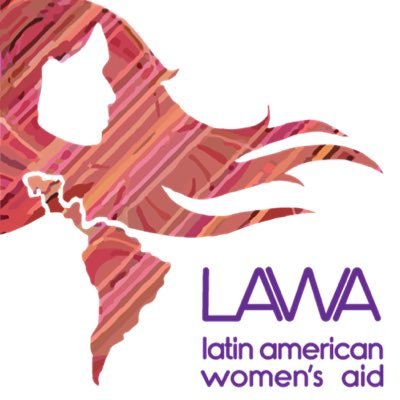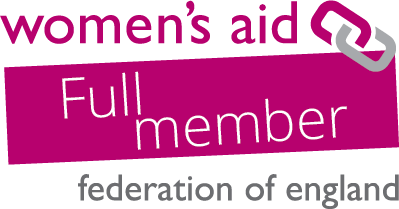Reflections from the Women Against Homelessness and Abuse (WAHA) initiative
By Gabriela Quevedo
In the UK, gender-based violence is a significant problem, with one in four women experiencing some form of it. This translates to approximately 1.7 million women. Domestic abuse accounts for 16.2% of all crimes recorded by the police in the year ending March 2023. During the period from March 2020 to March 2022, 186 women were killed by a male partner or ex-partner, which means that, on average, one woman was murdered by a male partner or ex-partner every week.
Sexist and misogynistic beliefs contribute to the prevalence of gender-based violence. Women who face additional forms of inequality due to race, ethnicity, wealth, social class, religion, sexuality, gender identity, disability, mental health, or age are at greater risk of experiencing violence and often struggle to receive appropriate support and justice.
Black and minoritized women face additional barriers to seeking help, including lack of knowledge of their rights, language proficiency, coercive migration status, lack of housing options, and poverty. Organizations like Latin American Women’s Aid (LAWA) provide critical support for these women. LAWA operates the only refuges by and for the Latin American community in the UK and Europe, offering over 35 years of experience in supporting women and children fleeing from various forms of gender-based violence, primarily Domestic Violence.
Based in Hackney and Islington, LAWA’s services extend to women from across London and the UK, supporting over 1,500 women and children each year. As a grassroots organization, LAWA is highly trusted by the community and is one of the few “by and for” black and minoritized refuge providers in the UK. “By and for” refers to specialist services designed and delivered by the communities they aim to serve, such as those led by and for Black and minoritized women, Deaf or disabled women, or LGBT+ women. In the context of violence against women and girls (VAWG), these services bring specific expertise to address these issues effectively.
Our approach to practice
Leaving an abusive relationship is challenging for anyone, but for migrants and women of colour, it marks only the beginning of a long journey through bureaucratic obstacles, gatekeeping, and misunderstanding. As violence against women and girls (VAWG) is both a cause and a consequence of gender inequality, addressing it requires confronting broader structural inequalities, including economic disparity, health inequity, and the hostile immigration environment.
Latin American Women’s Aid (LAWA) specializes in providing housing and refuge accommodation for survivors of gender-based violence. Our focus on influencing housing policy comes through the Women Against Homelessness and Abuse (WAHA) Initiative, which has operated for six years to address the intersecting issues of poverty, homelessness, and gender-based violence experienced by Black and minoritized women. The initiative aims to create pathways to secure safe and stable homes while promoting positive changes in housing policy and practice through ongoing learning, community dialogue, and collaboration with local authorities.
Unfortunately, accessing support can be another source of trauma and re-victimization for survivors. LAWA’s research indicates that Black and minoritized survivors face complex structural barriers when seeking safe accommodation, leading to high risks of homelessness and re-victimization at various stages, from leaving an abusive relationship to finding long-term stability. These barriers are rooted in systemic failures and discrimination by public authorities such as the police, social services, and local councils.
Re-victimization manifests through poor welfare and housing provisions, as well as structural sexism, exacerbated by intersecting oppressions related to race, immigration status, language barriers, class, and disability. LAWA’s primary goal is to improve responses from statutory services to better meet the housing needs of survivors, seeking to create a more supportive environment for those escaping gender-based violence.
Policy landscape on Homelessness and Gender Based Violence in the UK
The UK’s approach to homelessness is governed by various pieces of legislation, including the Housing Act 1996, the Homelessness Act 2002, and the Homelessness Reduction Act 2017. Part 7 of the Housing Act 1996 sets out the duties for local authorities when processing homelessness applications, including criteria for determining homelessness, notifying applicants, and providing accommodation.
The Domestic Abuse Act 2021 expanded the definition of domestic abuse to include not just physical violence but also emotional, psychological, and financial abuse. The act grants survivors automatic priority need for homelessness assistance and removes the requirement for vulnerability assessments. It also places duties on local authorities to establish Domestic Abuse Local Partnership Boards, assess the need for accommodation-based domestic abuse support, and develop a strategy to address this need.
Despite these positive changes, the Domestic Abuse Act has gaps. It lacks a gendered approach, fails to fully address the additional systemic barriers faced by women, particularly migrant women, and does not explicitly use the term “refuge,” though the Statutory Guidance does include it. Furthermore, technically speaking the Act does not require local authorities to provide domestic abuse victims with accommodation, but it does indicate an obligation around implementing needs assessments geared towards further reforming the support systems available to support survivors adequately.
Local authorities have prevention and relief duties to work with people who are homeless or at risk of homelessness. The prevention duty involves helping people who are threatened with homelessness within 56 days, while the relief duty requires helping those already homeless to secure accommodation. These duties are separate from those under the Domestic Abuse Act.
In summary, while recent legislative changes in the UK have improved the framework for supporting survivors of domestic abuse and homelessness, significant gaps remain. These gaps include a lack of comprehensive protection for migrant women and an inadequate emphasis on providing accommodation-based support for domestic abuse victims. The ongoing challenge for policymakers is to ensure that all survivors receive the protection and support they need, without systemic barriers or discrimination.
Needs unmet: efforts and challenges in London
The capacity of local authorities in London to understand and address the housing needs of Black and Minoritized women who have experienced domestic violence is lacking. Despite the policy framework established by the Domestic Abuse Act of 2021, which mandates support for survivors to access settled accommodation, efforts in the capital have fallen short. While some Safe Accommodation services have been commissioned, budget allocations have not met the full demand.
An independent needs assessment in 2022/23 revealed that 2,115 people in London were unsuccessful in accessing support from safe accommodation services. Reasons for these failures included capacity constraints and services unable to meet survivors’ needs. A significant portion of cases where needs went unmet were due to victims/survivors having no recourse to public funds or requiring mental health support.
Although there has been some positive impact from the Domestic Abuse Act, such as increased funding availability and improved local partnership working, challenges remain. Delays in funding, short-term funding arrangements, and increased demands for data collection are among the issues reported by organizations. Despite progress, the demand for services continues to outstrip available resources, highlighting the need for ongoing improvements in commissioning practices.
Intersecting failures in the UK housing and social benefits systems
The housing crisis in London contributes to significant barriers for women seeking support after experiencing domestic violence. According to London Councils, 1 in 50 Londoners are currently homeless and living in temporary accommodation. However, women’s experiences of homelessness often differ from men’s; women are more likely to face “hidden homelessness,” such as couch-surfing or living in overcrowded conditions, rather than being visibly homeless on the streets.
Homelessness and violence against women and girls (VAWG) are closely linked. Many homeless women or those at risk of homelessness have faced gender-based violence, and women fleeing such violence are at high risk of becoming homeless during their escape. Although the Domestic Abuse Act 2021 imposes a duty on local authorities to provide safe accommodation for survivors, the lack of social housing and reliance on the Private Rented Sector (PRS) as the primary option to relieve homelessness creates significant challenges for vulnerable women seeking stable accommodation.
The inadequacies of the housing benefit system, such as caps on Local Housing Allowance, make it difficult for women to afford private rental housing. This has led to calls for the Department of Work and Pensions (DWP) to re-assess these caps to better align with the real costs of private rented accommodation in London. Additionally, calls for the Mayor of London and the Greater London Authority to regulate the PRS have been made to ensure it is affordable and safe for women, as it is often their only option.
Other factors exacerbating the problem include the shortage of temporary accommodation due to a decrease in supply, as private landlords seek more profitable tenants, and staff shortages within local authority housing teams. High staff turnover and lack of training also contribute to the deterioration in the quality of temporary accommodation. This decline is likely connected to chronic underfunding and inadequate regulation of the sector, creating further obstacles for women seeking a safe and stable environment after escaping domestic violence.
Alongside the Women’s Budget Group, LAWA strongly supports the recommendation from Shelter’s commission on the future of social housing for the government to deliver 3.1 million more social homes within 20 years. This will ensure that the benefits of the housing safety net are more widely distributed, while saving the government billions of pounds in housing benefit paid to private landlords.
For more information about this visit: https://england.shelter.org.uk/support_us/campaigns/a_vision_for_social_housing
What happens in practice?
In practice, housing officers at local councils are often ill-equipped to support women from minoritized communities. The communication between case workers and these officers is sporadic, inefficient, and frequently affected by disbelief and prejudice, leading to retraumatization for survivors of gender-based violence. This inconsistent contact with statutory agencies makes it difficult for women to move forward and rebuild their lives after experiencing domestic abuse.
Between June 2020 and June 2023, the Women Against Homelessness and Abuse (WAHA) initiative managed 193 complex cases. The majority of these referrals (63%) were related to gender-based violence, with homelessness (46%) and threatened homelessness (16%) being common issues. Additionally, 31% of referrals were due to problems with temporary accommodation facilities, including long stays in unsuitable temporary accommodations and issues with landlord harassment or eviction procedures.
Unfortunately, many survivors are refused support until legal action is threatened. Several forms of “gatekeeping” practices contribute to this problem, such as:
- Failure to apply the statutory definition of domestic abuse.
- Unlawfully high evidence thresholds that create an environment of disbelief and distrust.
- Inappropriate instructions for survivors to stay in or leave their borough.
- Local Housing Teams preventing survivors from making valid homeless applications.
- Local Housing Teams failing to meet the duty owed to survivors already assessed as homeless.
- Wrongful assessment of survivors’ homeless status due to a lack of understanding of gender-based violence.
- Social Services staff providing incorrect guidance in immigration matters.
- Racism and discrimination encountered while dealing with local authorities.
- Severe negligence in ensuring that survivors are housed in safe, healthy, and hygienic conditions.
- Poor or non-existent communication between housing officers and survivors, causing retraumatization.
- Police malpractice due to a lack of information in community languages and a culture of disbelieving survivors.
To address these challenges, the police should provide accessible information to Black and minoritized survivors about referral pathways, including direct referrals to Black and minoritized services and refuges. Additionally, a trauma-informed approach and cultural competency training, including professional interpreting services, are critical to improve support for survivors of violence against women and girls (VAWG).
Elections period: an opportunity to raise awareness and advocate for solutions
With upcoming general and local elections in the UK, there is an opportunity for political parties to commit to a “comprehensive whole-society approach” to addressing violence against women and girls (VAWG), focusing on the most marginalized. A coalition of over 70 organizations, including Latin American Women’s Aid (LAWA), subscribed to a joint manifesto in September 2023 outlining their collective priorities for the next government. This manifesto highlights ten key areas of focus: Rights and inequalities, Prevention, Funding and commissioning of specialist VAWG services, Economic barriers, Partnerships, Health and social care, Housing, Family courts, Criminal justice reform, and Perpetrators.
LAWA proposes recommendations centered on Housing and Homelessness Prevention for Black and minoritized survivors of VAWG in the context of the accountability of the Mayor of London and the London General Assembly. These recommendations are based on LAWA’s case file analysis, policy review, and survivor testimonies, as detailed in our December 2023 publication ‘Homes For Healing:
Key recommendations for the London Mayor and London Assembly include:
- Enforcing consistent VAWG Service Provision: Work with local authorities to ensure that housing officers understand women’s legal entitlements, preventing gatekeeping practices that require legal threats to act.
- Supporting Move-On Accommodation: Allocate resources to develop second-stage/move-on accommodation schemes for survivors to facilitate smoother transitions after leaving abusive situations. Ensure these resources can be accessed by smaller by and for providers.
- Create more Social Housing: Provide more support for women in need of housing, especially those affected by abuse, with a focus on social housing rather than the Private Rented Sector (PRS). This means: make a clear commitment to increase the social housing stock in the Capital
- Ensuring consistent guidelines across Local Authorities: Local Authorities must ensure proper assessments and stop demanding local connections from abuse survivors, while meeting safe accommodation standards.
- Creating specific referral pathways: Local authorities should create referral pathways with non-commissioned “by and for” services to better support minoritized survivors who may fear interacting with the police or council due to immigration concerns.
- Meeting safe accommodation duty: Local authorities must ensure that their temporary accommodation stock meets minimum standards of suitability, with proper inspections, staffing, and support for survivors.
The London Assembly should also advocate for proper communication, training, and mechanisms that ensure survivors are not re-traumatized during the support process.
If you want to help us spread the word about this call to action you can do the following:
Share the social media snapshots on our Instagram account (@LAWALondon), and share this article:
- With your friends and family
- With the elected local authorities in London
Read more about our most recent research: Homes for Healing: Research Updates from the WAHA Initiative
For more information, background and stories: Visit the WAHA initiative micro-site





